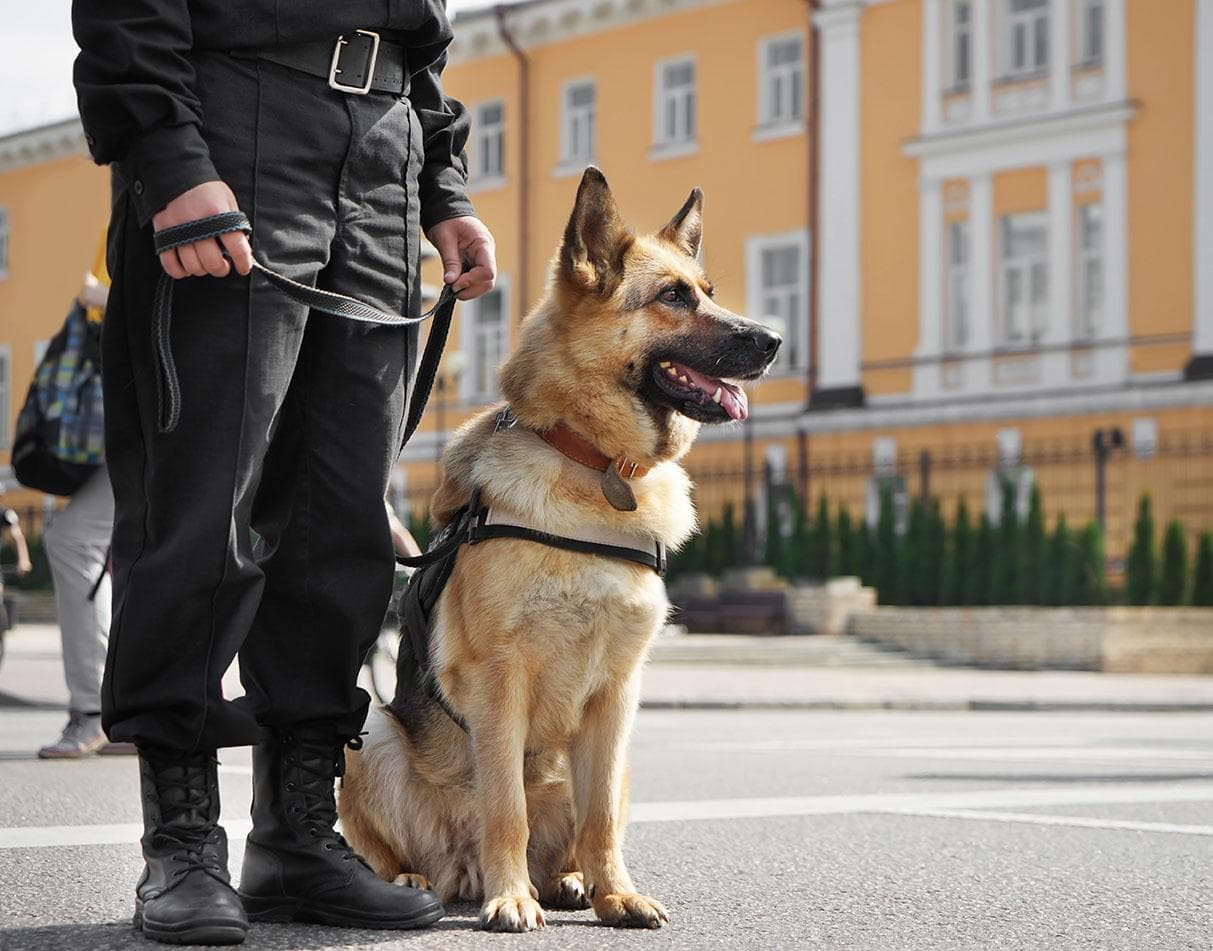Tax season is never fun. We always hope there are things we can claim when filing. Surprisingly enough, there are several cases where the cost of your dog’s food may be tax-deductible. Usually, pet-related expenses are considered personal expenses, so they cannot be claimed on your taxes. Furthermore, you cannot claim pets as dependents. However, if your pet is a service animal, has income, or works at your business, you may deduct some or all of their expenses.
Of course, the US tax code is quite complicated. There are many situations where you may not be able to deduct your dog’s food, even if they fit into one of these categories. For information on your personal situation, you should see a tax specialist.
Let’s take a quick look at each of these categories.
Service Animals
Service animals are a necessary expense for those who one them. They are not pets or companion animals. Therefore, some of their costs can be offset by deducting them from your taxes. These animals need to be certified service animals, typically with some training. You have to provide documentation that your dog provides these services, as well.
Typically, those taking these deductions provide a prescription from their doctor stating that they need the animal.
Usually, the cost of purchasing the animal, training, food, veterinary costs, and grooming costs can be deducted as a medical expense. After all, the animal is a medical necessity for you.
You may be able to claim these expenses even if the service dog is not technically yours. Those who take care of service animals-in-training may be able to deduct the time and money they spend on the dog as a charitable donation.
Everyone gets a set deduction level for medical expenses. In order to deduct more, you must spend more than 7.5% of your income on medical expenses, including your service animal. If you go over this amount, you can itemize your deductions, including all your dog’s expenses.

Pets With Income
Most pets do not generate income of any kind. However, if your dog does generate income, you may be able to deduct most of their expenses, assuming they’re making enough to justify the expenses.
Show animals, breeding dogs, and pet actors typically fall into this category. However, you do need to claim that you’re self-employed and use your dog to make at least part of your income. It cannot simply be a side hobby, as a hobby is not claimable.
To maximize your claims, you’ll have to keep track of all expenses and keep receipts. You must itemize expenses to properly deduct your pet’s food in this case, so receipts are necessary.
Business Animals
If you are self-employed or have your own business, you may deduct your dog’s expenses if they perform some service. However, not all of your dog’s expenses can be written off—usually just a portion depending on the amount they work.
You also have to establish that your dog is performing a service. Guard dogs are the most common way to go about this. However, you also need a reason to have a guard dog (and your dog has to come to your place of work with you, of course). If you own a junkyard, it may make sense that you need a guard dog. If you work in an office building, the IRS may not consider a guard dog necessary!
To make this deduction, you’ll need to be very detailed about the hours your dog works. You’ll have to demonstrate that your dog is actually helping your business in a way that demonstrates their upkeep.
Furthermore, the IRS may inquire about the breed of the dog. Some breeds of dogs make more sense for certain jobs. If you claim that your Yorkie is a guard dog, you may run into some problems!

Can You Claim Pet Supplies on Taxes?
If your pet falls into one of the above categories, you can likely write off some of your expenses on your taxes. If your pet makes their own income, works for your business, or is a service animal, then at least some of their expenses should be deductible. However, itemization is usually required, which means you’ll have to keep receipts and records.
There are some other circumstances where certain expenses may be deductible. For instance, you can deduct moving expenses if you’re relocating for a job. These expenses include moving your pet. Therefore, if you paid any money to move your pet (including purchasing a crate), then you can deduct these from your taxes.
Those who foster dogs may be able to write off the expenses they incur when caring for their foster animals. These qualify as charitable donations, allowing them to be deducted.
Some other circumstances may qualify. For instance, K9 handlers in Law Enforcement can usually deduct their dog’s supplies from their taxes, assuming the dog lives with them after work.

Can I Claim My Dog as a Dependent?
Sadly, you cannot claim your dog has a dependent, even if you do consider them family. The tax code does not explicitly state that you cannot claim a dog as a dependent. Instead, it simply states that the dependent must be a child or relative.
Obviously, dogs do not fall into this category. Furthermore, you’ll need a social security number to claim your child as a dependent. Dogs don’t have social security numbers so claiming them simply wouldn’t be possible, even if you could count them as your child!
The only way to get money back on your taxes for your canine is to employ them at your business, use them as a service animal, or have them earn income. Even then, not all of their expenses are typically deductible. Plus, you still can’t claim them as dependents on your taxes.
Conclusion
You can sometimes claim dog food on your taxes but you have to fit into very specific guidelines. The average dog owner will not be able to make this deduction.
Only dogs that fall into these categories will possibly have some of their expenses deducted:
- Dogs that produce income (actors, breeding dogs, etc.)
- Dogs employed at your business (guard dogs, advertising dogs, etc.)
- Service animals
Furthermore, those who foster dogs or purchase food for shelter dogs can count that food as a donation. These donations can be deducted if you itemize. Therefore, be sure to keep all receipts. These donations can’t be more than 50% of your income.
See also:
- 10 Best Service Dog Breeds (with Pictures)
- Service Dog vs. Therapy Dog vs. Emotional Support Dog: What’re the Differences?
Featured Image Credit by Andrey_Popov, Shutterstock












